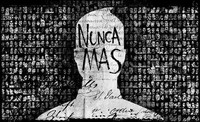Panel Discussion
December 5, 2013
4:00 p.m.
President's Room Coffman Memorial Union
University of Minnesota

Is there a new antisemitism? A growing body of reports and research centers claim that a new strain of antisemitism is sweeping the globe. Five renowned scholars in the field of antisemitism studies will discuss historic antisemitism, its long term after effects and contemporary manifestations in Europe and the US.
Convened by Alejandro Baer, Director, Center for Holocaust and Genocide Studies (CHGS) and Klaas van der Sanden, Interim Director, Center of Austrian Studies (CAS)
Panel:
• Philip Spencer (Kingston University, UK, Historian).
• Chad Allan Goldberg (University of Wisconsin Madison, Sociologist)
• Zsolt Nagy (University of St. Thomas, Political Scientist,)
• Gary Cohen (University of Minnesota, Historian)
• Bruno Chaouat (University of Minnesota, French Literature & Thought, former Director, CHGS)
Sponsored by: The Center for Holocaust and Genocide Studies, Center for Austrian Studies, The institute for Global Studies, The European Studies Consortium, Center for Jewish Studies, Center for German and European Studies, and the Jewish Community Relations Council

-thumb-200x112-159713.jpg)

